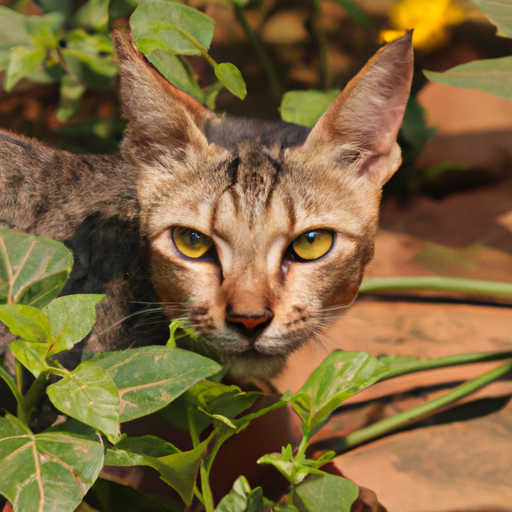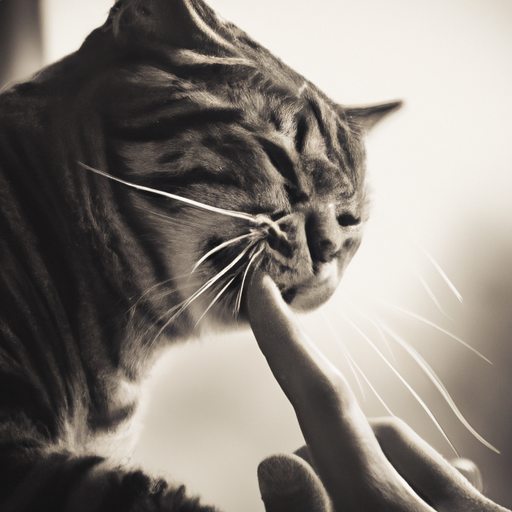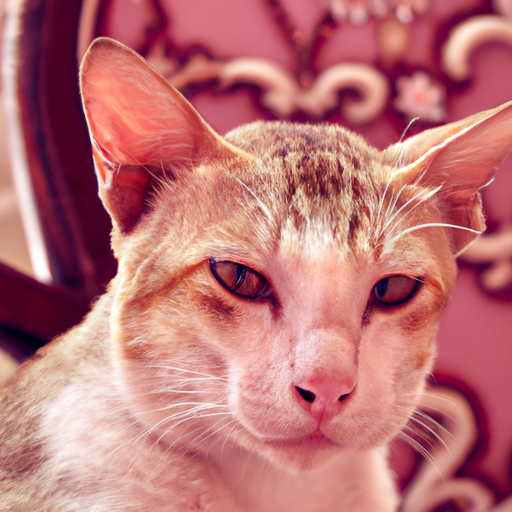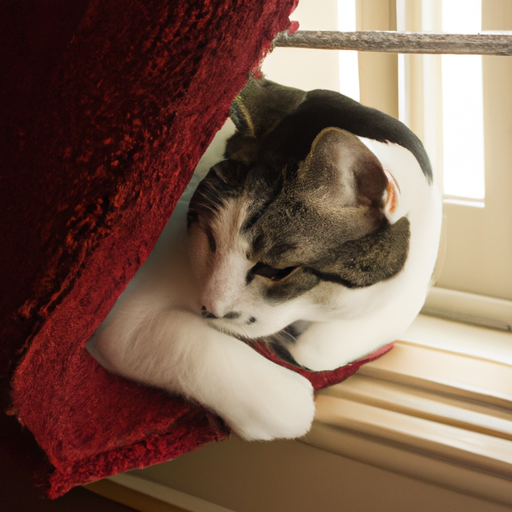Why Do Cats Eat Grass?
Discover a fascinating insight into the hidden behaviors of your friendly feline. “Why Do Cats Eat Grass” explores that very question that baffles many pet owners. Your cat might practically be a predator, but they sometimes behave like herbivores – munching on a blade of grass as nonchalantly as you would a stick of celery. Is it good for them? Is there a reason behind this peculiar behavior? Stand by as this article unveils the curious and captivating world of cat feeding habits and lets you in on why your beloved furball has an almost primal instinct to eat grass.
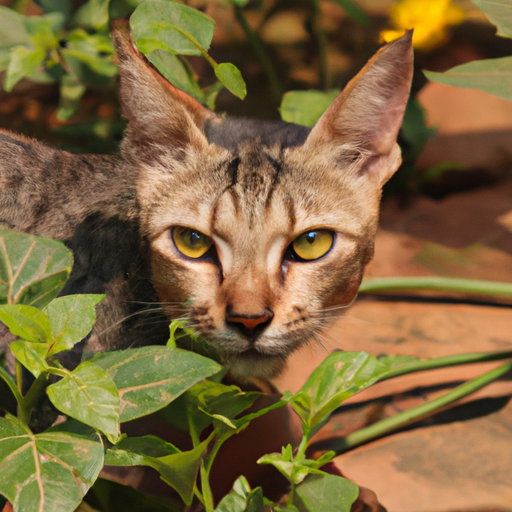
Understanding Normal Feline Behavior
When it comes to understanding your feline friend, it’s important to consider their natural instincts and behaviors.
A look at the overall behavior of cats in the wild
Cats in the wild are solitary creatures, adept at hunting and stealth. They have retained their reflexes and instinctual behavior, first revealed through survival strategies developed eons ago when they lived in the wild. Every jump, sprint, and pounce is a testament to a cat’s innate agility and strength, fine-tuned over generations of evolutionary adaptation.
Modern day housecats and their predatorial instincts
Even though they’ve become domesticated, modern-day housecats retain many of these predatory instincts. They stalk, pounce, and play in ways that mimic hunting behaviors seen in the wild. It’s fascinating to watch a housecat engage with a toy mimicking a fugitive mouse, employing complex stalking strategies similar to those used by their wild counterparts.
The Feline Diet in Nature
The diet of cats in the wild differs greatly from that of your housecat. Here’s a little more about feline nutrition in the wild.
Cats as obligate carnivores
Cats are obligate carnivores, which means they need to eat meat to thrive. Their bodies require certain nutrients, like taurine and arachidonic acid, which are only present in animal tissue. A diet that lacks these specific nutrients, typically found in a carnivorous diet, can put cats at risk for severe health issues.
Role of greenery in the diet of wild cats
But it’s not just about meat. Despite being obligate carnivores, felines sometimes eat grass or other greenery in the wild. While their primary diet is meat, a little greenery can be beneficial for felines in certain ways, which we’ll delve into a bit later.
Observing the Habit: Domestic Cats Eating Grass
Housecats also often exhibit an unexpected fondness for grass, even though their dietary needs are mostly met by cat food.
Frequency of housecats eating grass
You may have noticed your own feline companion nibbling on grass whenever they’re out in the yard. While it may seem strange, it’s quite common for domestic cats to eat grass, even if they’re indoor cats and have to seek out an indoor alternative.
Types of greenery housecats are most likely to eat
Housecats aren’t picky about the type of grass they consume. They can be seen snacking on many types of grass, including your regular lawn grass or even potted plants.
Common Theories Explaining Why Cats Eat Grass
Although the sight of your kitty munching on grass might seem odd, several theories could help explain why they do it.
The argument for removal of indigestible material
One prevailing theory is that cats use grass as a natural laxative or to induce vomiting, thereby eliminating indigestible materials such as fur, feathers, or bones from their system. This purging process aids their digestion.
Concept of self-medication and relief from parasites
An alternate theory suggests that felines ingest grass as a form of self-medication, providing relief from parasitic infestations. The natural compounds in grass may help to kill and expel worms or other internal parasites.
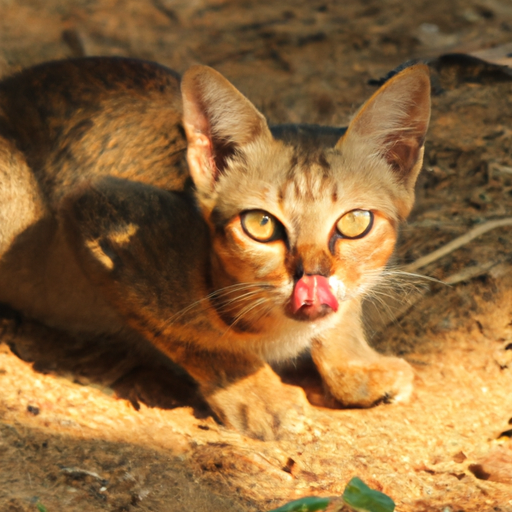
Digestive Benefits of Grass for Cats
These theories regarding why cats eat grass suggest potential health benefits for our feline friends.
Role of grass in inducing vomiting and aiding digestion
When a cat ingests grass, the grass blades tickle their throat and stomach lining. This sensation often leads to vomiting, which can help to expel indigestible materials that have been consumed during the course of regular grooming or hunting.
The potential for grass to add fiber to the diet
Like in human nutrition, dietary fiber benefits cats in several ways, including aiding digestion and promoting overall gut health. Eating grass can contribute to cats’ fiber intake.
How Grass Consumption Might Aid in Parasite Control
If cats indeed ingest grass as a way to self-medicate against parasites, here’s how it might work.
How eating grass might help control internal parasites
The abrasive texture of grass might physically help to evict parasites from a cat’s digestive tract. Grass consumption could also stimulate increased gastrointestinal motility and purging, reducing the number of parasites.
Review of research on grass-eating and worm infestation
Scientific research on the subject is limited; however, some studies seem to support the idea that grass-eating may be correlated with lower worm infestations in cats. Regardless, more research is needed in this area.
Potential Dangers of Grass Consumption
While grass consumption may have some potential benefits for cats, it’s important to be aware of the potential risks as well.
Risks of pesticides and chemical treatments
If the grass consumed by your cat has been chemically treated for pests or fertilized, it could present a health risk. Cats could be exposed to harmful chemicals that could lead to illness or even be fatal.
Dangers of foreign body ingestion from eating grass
Ingesting grass can sometimes lead to accidental ingestion of foreign bodies, or the grass itself could become a foreign body if it doesn’t break down properly in the digestive tract. This can lead to a variety of health problems, including blockages in the gastrointestinal tract.
Alternatives to Grass for Indoor Cats
Indoor cats may not have easy access to grass but could still display the same instinct to consume it.
Purchasing cat grass or growing your own
Cat grass–usually a mix of wheat, barley, and rye–is a safe alternative that you can buy or grow yourself indoors. It’s a great way to satisfy your cat’s craving for greenery while ensuring they’re not ingesting harmful chemicals.
Other plants that are safe for cats to ingest
There are also several indoor plants safe for cats, like valerian and catnip. These can serve as good grass alternatives for indoor cats while stimulating their natural interest in plants.
When Grass Eating Might Indicate a Health Problem
While grass eating is usually harmless, sometimes it might be a cause for concern.
Excessive grass eating as a symptom of illness
Excessive grass eating could potentially signal underlying health issues, like gastrointestinal disease. If your cat starts to eat grass compulsively or is vomiting more than usual after eating grass, it’s time to consult a vet.
When to seek veterinary advice about your cat’s grass eating habits
As with any change in behavior, if you’re worried about your cat’s grass eating habits, it’s a good idea to get some advice from a professional. The vet can help you understand if your cat’s behavior is a normal activity or a sign of an underlying health problem.
How to Prevent Cats from Eating Harmful Grass or Plants
Cats don’t always know what’s good for them, so it’s up to you to manage their exposure to potentially harmful plants.
Recognizing toxic plants for cats
Many common plants can be harmful or even toxic to cats. Lily plants, for instance, can be deadly to cats, even in small amounts. It’s important to identify such plants in and around your home, and to keep your cat away from them.
Ways to prevent your cat from eating grass or plants outside your home
The easiest way to monitor your cats’ behavior is to keep them indoors. If they do go outside, make sure your yard the area is free from chemically treated grass and toxic plants. Offering safe alternatives like cat grass can also reduce their risk of ingesting harmful substances.
In conclusion, cats eating grass is a normal part of their behavior, driven by their ancestral instincts. It could serve a beneficial role in aiding digestion and potentially controlling internal parasites. But pet parents must ensure that their cats aren’t consuming harmful chemicals or toxic plants. Recognizing changes in grass eating behaviors could play a crucial role in identifying underlying health issues in our feline friends.

